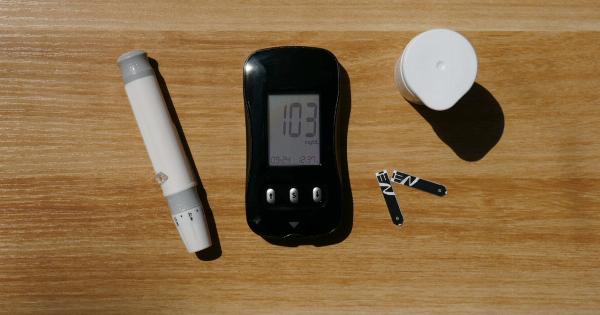Music has been an integral part of human culture since time immemorial, tapping into our emotions, connecting us to our surroundings, and influencing our mood.
Whether we’re blaring our favorite tunes on a road trip or using it as therapy to calm our racing thoughts, the impact of music on our well-being is undeniable. In recent years, researchers have delved into understanding the physiological effects of music on our bodies, particularly on our heartbeat and blood pressure.
The Rhythm of Life: Music’s Effect on Heartbeat
Our hearts beat to an internal rhythm, but they can also respond to external stimuli, such as music. Numerous studies have shown that music can significantly impact our heartbeat, altering its rate and rhythm.
When we listen to music with a faster tempo, our hearts tend to beat faster, mirroring the rhythm of the music. On the other hand, slower tempo music has been found to have a calming effect, slowing down our heartbeat and helping us relax.
Research conducted at the University of Pavia in Italy demonstrated that when subjects listened to classical music with a slow tempo, their heart rates decreased, leading to a state of relaxation.
Conversely, listening to fast-paced music, such as techno or heavy metal, caused an increase in heart rate. The ability of music to influence our heartbeat can be attributed to its ability to stimulate the autonomic nervous system, which regulates involuntary bodily functions such as heart rate.
A Soothing Melody: Music’s Impact on Blood Pressure
Blood pressure, the force exerted by the blood against the walls of our blood vessels, is closely linked to our overall cardiovascular health. High blood pressure, or hypertension, is a significant risk factor for various cardiovascular diseases.
Interestingly, music has shown promising effects in reducing blood pressure levels.
A study conducted at the University of Florence in Italy explored the impact of classical music on blood pressure.
Participants listened to Mozart’s Sonata for Two Pianos in D Major for 25 minutes a day, resulting in a significant decrease in systolic and diastolic blood pressure. The researchers concluded that classical music, with its harmonious melodies, has a calming effect on the body and mind, leading to reduced blood pressure levels.
Another study published in the Journal of the American Society of Hypertension investigated the effects of music on blood pressure in prehypertensive and hypertensive individuals.
It revealed that listening to calming music for just 30 minutes a day resulted in a noticeable reduction in blood pressure. The researchers suggested that music-induced relaxation aids in dilating blood vessels, promoting better blood flow, and ultimately leading to lower blood pressure.
The Healing Power of Music in Healthcare Settings
Music’s influence on heartbeat and blood pressure has been widely recognized in the medical field, leading to its integration into various healthcare settings.
Music therapy, a specialized discipline, uses music to improve physical, emotional, and psychological well-being. It utilizes the connection between music and our physiological responses to enhance patient outcomes.
In hospitals, music therapy has proven effective in reducing anxiety and stress levels, soothing patients before surgery, and promoting relaxation during recovery.
The calming effect of music on the autonomic nervous system helps patients regulate their heart rate and blood pressure, creating an optimal environment for healing.
Moreover, music therapy has also been implemented in the management of chronic conditions such as hypertension and heart disease.
By incorporating music into lifestyle changes, patients can use it as a complementary tool to control their blood pressure levels and improve overall cardiovascular health.
The Role of Personal Preference in Music’s Effectiveness
While there are general trends in the impact of music on heartbeat and blood pressure, personal preference plays a crucial role in music’s effectiveness. Different individuals respond differently to various genres and tempos of music.
What one person finds calming, another may find agitating.
For instance, a study published in the British Journal of Health Psychology found that participants who were fans of heavy metal music experienced a decrease in blood pressure when listening to their preferred genre, whereas their blood pressure increased when listening to other types of music. This highlights the importance of tailoring music interventions to an individual’s tastes to maximize its beneficial effects.
Utilizing Music for Stress Management and Relaxation
With the growing understanding of music’s impact on heartbeat and blood pressure, incorporating music into our daily lives can be a powerful tool for stress management and relaxation.
Whether we’re facing a demanding workday or seeking solace after a long day, selecting the right genre and tempo of music can make a significant difference.
To relax and unwind, consider opting for slow-tempo instrumental music, such as classical, ambient, or jazz. These genres have a soothing quality that can help slow down your heart rate and promote relaxation.
On the other hand, if you’re looking to boost your energy levels, go for faster-paced genres like pop, rock, or electronic music.
Experiment with different genres and playlists to discover what resonates best with you. Remember, the effectiveness of music in managing stress and promoting relaxation is highly individual, so choose the melodies that make your heart sing.
Conclusion
Music’s influence on heartbeat and blood pressure is an incredible testament to the power of sound and its impact on our physiological responses.
Whether we’re seeking relaxation, managing stress, or even improving cardiovascular health, music has the ability to engage our bodies and minds, creating a harmonious environment for well-being. So, put on your favorite tunes, let the melodies sway your heartbeat, and allow the music to transport you to a place of tranquility and healing.































